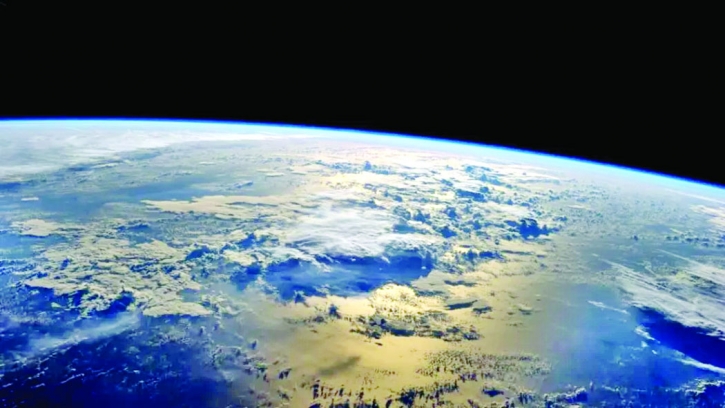
SAT Desk
Earth as seen from the International Space Station. The planet recently experienced the shortest day on record.
Earth as seen from the International Space Station. The planet recently experienced the shortest day on record. (Image credit: NASA/Reid Wiseman)Scientists have recorded Earth's shortest day since its rotational period began to be recorded with highly precise atomic clocks: On June 29, 2022, Earth's spin was completed in 1.59 milliseconds under 24 hours.
A day lasts 24 hours because the Earth completes a full spin on its axis roughly every 8,640,000 milliseconds. In the short term, this speed can fluctuate by factions of a millisecond from day to day. This means that the length of a day can vary, but only usually by a tiny amount.
Our planet is also experiencing long-term changes as well. Previously, the planet had been observed to be spinning more slowly and taking longer to complete a day. As a result, with every passing century, Earth has been taking a few milliseconds longer to complete a spin.
In recent years, however, this long-term trend has been reversing. The Earth seems to be speeding up and taking progressively less time to complete its spin meaning days are shortening.
In December 2020, the website Time and Date reported(opens in new tab) that during that year the Earth had experienced its 28 shortest days since scientists began measuring the length of a day with atomic clocks in the 1960s. July 19, 2020, was a record-breaking short day that year with Earth completing a rotation in 1.47 milliseconds under 24 hours. The record remained unchallenged during 2021 before being broken by a minus 1.59 millisecond day on June 29, 2022.
And July 19, 2020, would not stay in the second-fastest day placement for long either. Just a month after the record for the fastest day was shattered, that second place day was once again dethroned further when Earth experienced a -1.50 millisecond day on July 26, 2022.
Scientists have several ideas regarding what could be causing Earth to suddenly begin speeding up its rotation and shortening its days. These ideas can involve processes in the planet's inner or outer layers, oceans, tides, or even its climate.
One team of researchers thinks that the shortening of days could be related to a small irregular movement in the Earth's geographical poles and its axis of rotation that shifts them by a minuscule amount across its surface called the 'Chandler wobble.'
"The normal amplitude of the Chandler wobble is about three to four meters at Earth's surface, but from 2017 to 2020 it disappeared." HSE University associate professor Leonid Zotov told Time and Date.(opens in new tab)
If the decrease in day length continues then it may necessitate the introduction of a negative leap second to keep 'civil time' measured by highly reliable atomic clocks in sync with solar time, the movement of the sun through the sky from sunset to sunrise.
Zotov isn't convinced that this measure, which could cause difficulty for some computer systems, will be needed. He thinks day lengths may not shorten by much more.
"I think there's a 70 percent chance we're at the minimum and we won't need a negative leap second," he said.
This week Zotov and his colleague will present their hypothesis at the 2022 annual meeting of the Asia Oceania Geosciences Society(opens in new tab) which is broadcast online.





































